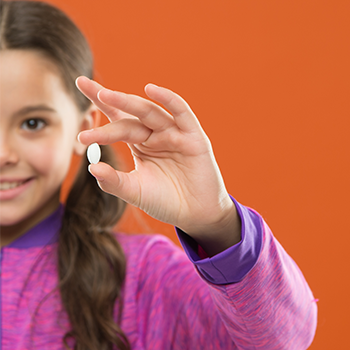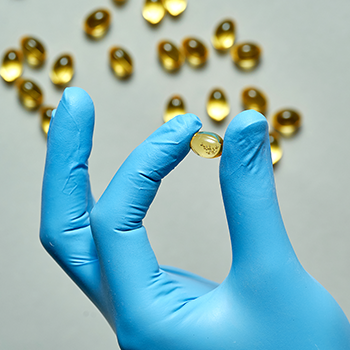As a medical doctor, I frequently encounter mothers curious about the right time to introduce multivitamins into their children's diets.
Understanding this concern, I've crafted this article to guide parents on when it's appropriate and beneficial to start multivitamins for their little ones.
We'll delve into the essential vitamins and minerals vital for children's growth and development, and equally important, highlight which ingredients in multivitamins should be avoided to ensure their safety and well-being.
Quick Summary
- A child can start taking multivitamin supplements at six months such as vitamin D, vitamin C, and vitamin A.
- You should give your child vitamins if a child's growth is delayed, a child has a chronic condition, or if a child doesn't get enough nutrients.
- Research published by the Egyptian Journal of Internal Medicine has linked sweeteners to hypertension, obesity, insulin resistance, and metabolic syndrome, so it’d be best to avoid supplements that contain them.
- In my professional opinion, a well-planned diet is often the best source of nutrients for children, with multivitamins serving as a beneficial supplement in specific cases.
When Can A Child Start Taking Multivitamins?

A child can start taking multivitamins at six months of age. It’s recommended that children between six months and five years take supplements containing:
- Vitamin A
- Vitamin C
- Vitamin D
However, not all children need vitamin or mineral supplements. Mostly, they’ll get all the nutrients they need from a healthy diet.
That’s why it’s recommended you wait until your child is at least four years old to determine if he needs a multivitamin supplement, as per WebMD [1]. Your pediatrician might help in that area. He may note deficiencies at regular visits and blood checks.
For Josephine Olivadoti, owner of Advanced Supplements, getting personalized guidance and a clear go-signal from healthcare professionals is important because excessive intake of vitamin supplements can have adverse effects.
With that said, there are a few instances in which healthy foods may not provide enough micronutrients to your child. We’ll go through such cases below.
Related: Best Multivitamins For Teens
When Should You Give A Child Vitamins?

Vitamin and mineral supplements aren’t necessary for all children. However, according to Arnold Palmer Hospital for Children, they might be necessary when [2]:
- A child’s diet doesn’t provide enough nutrients: Children need a balanced diet that includes fresh and whole foods. However, some children don’t have such a diet. Maybe your child is a picky eater, allergic to some food, or perhaps you’re putting him on a specific type of diet — such as a vegetarian or vegan diet — that doesn’t provide enough nutrients.
- A child has chronic medical conditions: Some children may need vitamin supplements if they suffer from conditions such as asthma or digestive problems. But you should definitely consult the child’s doctor before giving him any supplements to check whether it’s O.K. to use them with the prescribed medications.
- A child’s growth is delayed: Multivitamin supplements can help children with delayed physical or developmental growth.
Which Vitamins And Minerals Do Children Need?

I’ll list a few common vitamins and minerals that some children lack — especially if they’re on a restrictive diet.
Vitamin A
In my practice, I've seen cases where children, especially those from areas with limited dietary diversity, suffer from Vitamin A deficiency. This often leads to impaired vision and a higher risk of infections.
This issue is particularly prevalent in certain parts of the world, highlighting the global nutritional deficiencies in children. Ensuring a diet rich in green vegetables and fruits is crucial, as noted by Merck Manuals [3].
Vitamins B
Children may lack a few different vitamin Bs, but they most commonly lack vitamin B12 due to a plant-based diet, as per Food Unfounded [4].
Vitamin B12 deficiency can lead to severe cognitive issues, such as poor memory, confusion, and even dementia. If you recognize these symptoms in your child, consult with your doctor and check whether you should introduce a multivitamin supplement.
Vitamin D

In my medical practice, I've often seen vitamin D deficiency in children on dairy-free diets, leading to conditions like rickets, where bones become soft, as noted by Medline Plus [5].
To prevent these serious issues, especially in lactose intolerant or vegan children, incorporating a vitamin D supplement is crucial for maintaining adequate bone health.
While there are various ways to obtain certain vitamins, such as through dietary sources, a vitamin D supplement can provide a reliable and consistent means of meeting your child's needs.
Calcium
Low calcium levels which are common in vegans often due to limited dairy intake as Medical News Today Reports [6]. It can lead to symptoms like fatigue and skin issues, and sometimes to less obvious conditions like osteoporosis.
In my practice, advising dairy-intolerant children to use calcium-rich alternatives and supplements has proven effective in addressing these deficiencies and improving overall health, also highlighting the importance of multivitamins in managing food allergies.
Iron
I've encountered numerous cases of iron deficiency, a problem not limited to vegan diets but widespread globally.
This widespread deficiency highlights the psychological impact of vitamin deficiency in children, as iron is crucial for cognitive development and overall well-being. Everyday Health reports on the importance of iron-rich foods or supplements in children's diets [7].
Good sources of iron include lentils, tofu, beans, spinach, and dried fruits. Alternatively, you can use multivitamin supplements — they frequently contain iron, although it’s a mineral.
How Much Vitamins And Minerals Does A Child Need?

Maybe you’re wondering just how many vitamins and minerals your child needs. Below is the Food and Nutrition Board's recommended dietary allowance for children as published by Oregon State University [8].
Children between 4 and 8 years need the following doses of vitamins and minerals:
Children between 9 and 13 need vitamins and minerals in slightly higher doses:
- Vitamin A: 0.6 mg/day
- Vitamin B6: 1 mg/day
- Vitamin B12: 0.0018 mg/day
- Vitamin C: 45 mg/day
- Vitamin D: 0.015 mg/day
- Vitamin E: 11 mg/day
- Calcium: 1,300 mg/day
- Iron: 8 mg/day
- Magnesium: 240 mg/day
- Zinc: 8 mg/day
Ingredients To Avoid

Firstly, you should absolutely avoid megavitamins, i.e., large doses of vitamins. Stick to the RDAs we’ve mentioned above. Also, avoid large amounts of fat-soluble vitamins.
According to the University of Washington, they may be toxic for young children if taken in high doses [9]. Vitamins A, D, E, and K are all fat-soluble vitamins, so be careful when introducing supplements that contain them.
Lastly, keep in mind that children’s multivitamins often contain sugar, artificial sweeteners, or both.
Research published by the Egyptian Journal of Internal Medicine has linked sweeteners to hypertension, obesity, insulin resistance, and metabolic syndrome, so it’d be best to avoid supplements that contain them [10].
FAQs
How Can I Boost My Toddler’s Immune System?
You can boost your toddler’s immune system with a diverse and well-balanced diet that includes lots of vegetables, fruits, and lean meats. If a toddler has a naturally weak immune system, you may want to use vitamin supplements.
How Do You Know if Your Child Has a Weak Immune System?
You’ll know your child has a weak immune system if he frequently suffers from digestive issues, infections, or inflammation. Also, children with weak immune systems usually have delayed physical or developmental growth.
Should Children Take Diet Pills?
Children should not take diet pills without consulting a doctor. Most diet pills, including those widely available on the store shelves labeled as “all-natural,” aren’t safe for all adults, not to mention a child or a teenager whose smaller body’s still growing and developing.
References:
- https://www.webmd.com/parenting/vitamins-for-kids-do-healthy-kids-need-vitamins
- https://www.arnoldpalmerhospital.com/content-hub/should-i-start-giving-my-child-vitamins
- https://www.merckmanuals.com/professional/nutritional-disorders/vitamin-deficiency,-dependency,-and-toxicity/vitamin-a-deficiency
- https://www.foodunfolded.com/article/plant-based-diet-vitamin-b12-sources
- https://medlineplus.gov/vitaminddeficiency.html
- https://www.medicalnewstoday.com/articles/325283
- https://www.everydayhealth.com/anemia/treatments-complications/
- https://lpi.oregonstate.edu/mic/life-stages/children
- https://depts.washington.edu/ceeh/downloads/Fast%20Facts%20Fat%20Soluble%20Vitamins%20063015.pdf
- https://ejim.springeropen.com/articles/10.1186/s43162-023-00232-1
About The Author
You May Also Like







The explanation about avoiding megavitamins and excessive fat-soluble vitamins was a real eye-opener. I didn’t realize these could be toxic for young kids if taken in high doses—definitely checking labels more carefully now.